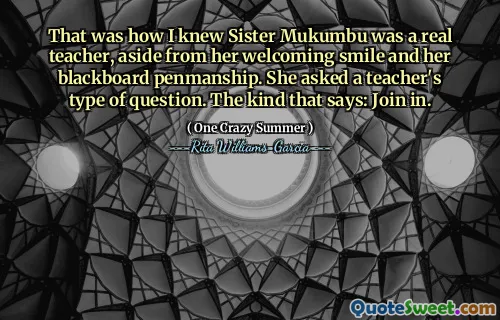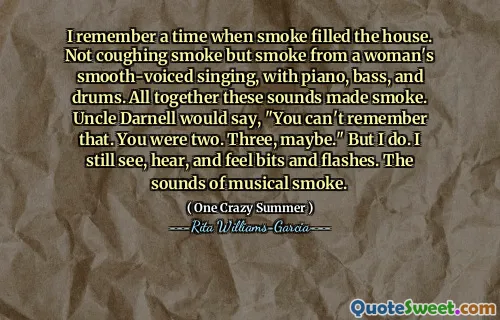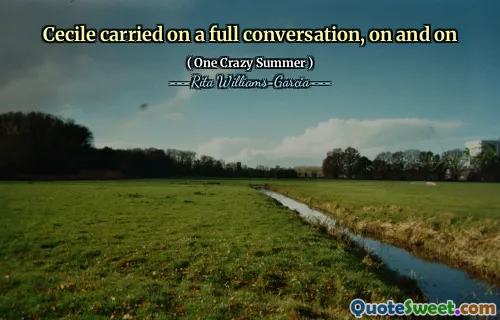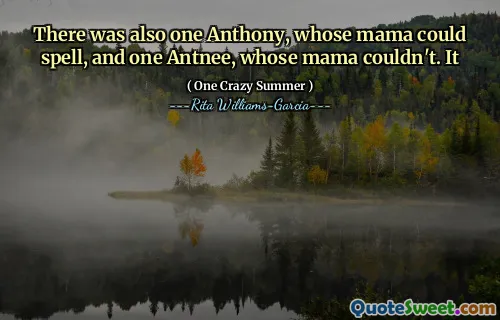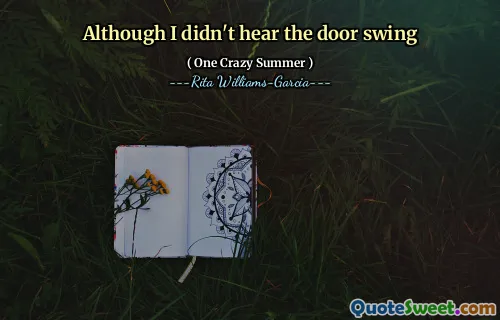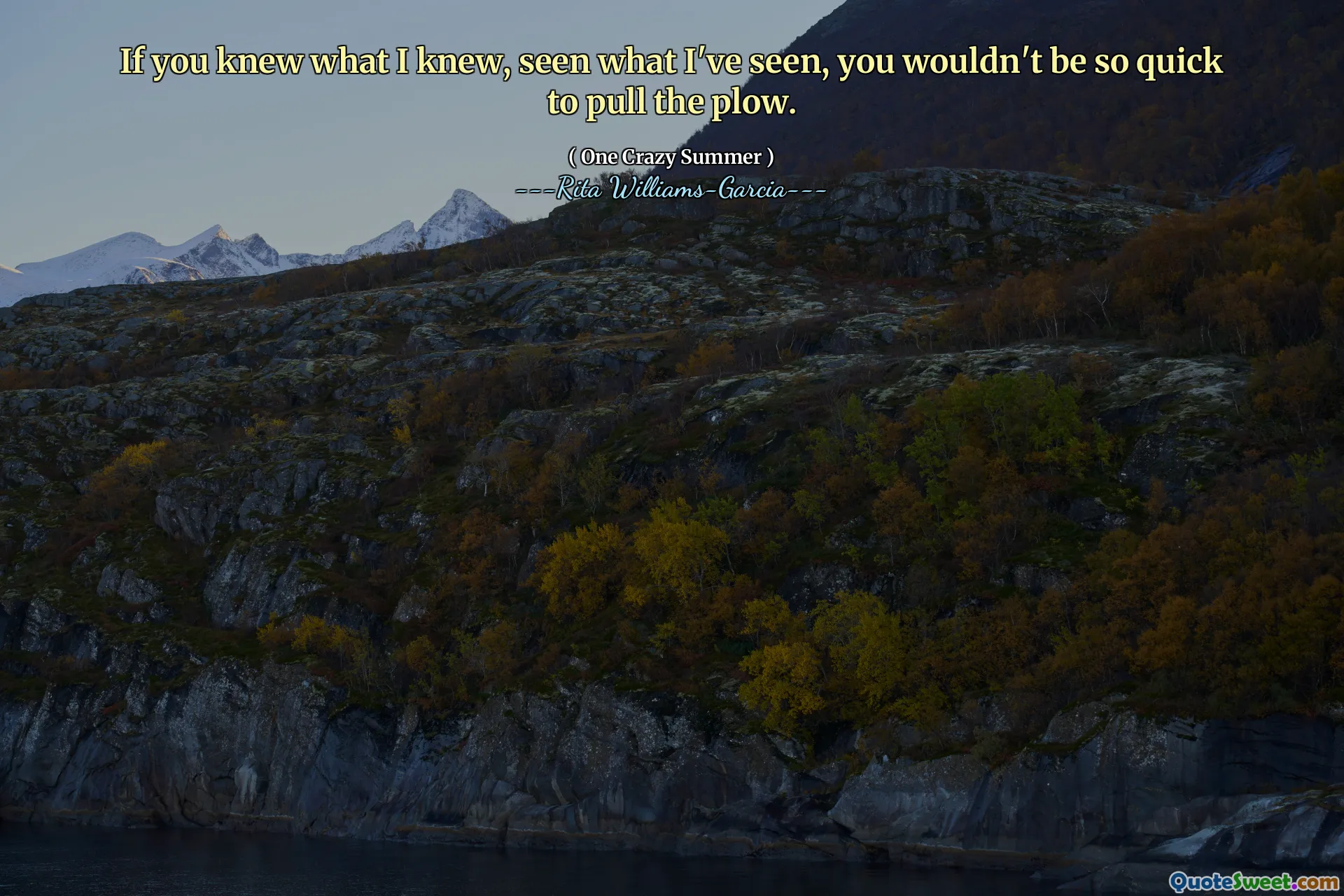
If you knew what I knew, seen what I've seen, you wouldn't be so quick to pull the plow.
"One Crazy Summer" by Rita Williams-Garcia tells the story of three sisters who travel to Oakland in the summer of 1968 to meet their estranged mother. The narrative explores their experiences and the challenges they face, highlighting themes of identity, family, and the impact of social issues of the time. The sisters must navigate their complex feelings about their mother and the new world around them, allowing them to grow closer as siblings.
The quote, "If you knew what I knew, seen what I've seen, you wouldn't be so quick to pull the plow," speaks to the wisdom gained through personal experience. It implies that understanding the struggles and realities others face can change one's perspective and actions. This theme resonates with the sisters’ journey, emphasizing how knowledge and experiences shape their understanding of family and the world, ultimately leading to growth and empathy.

